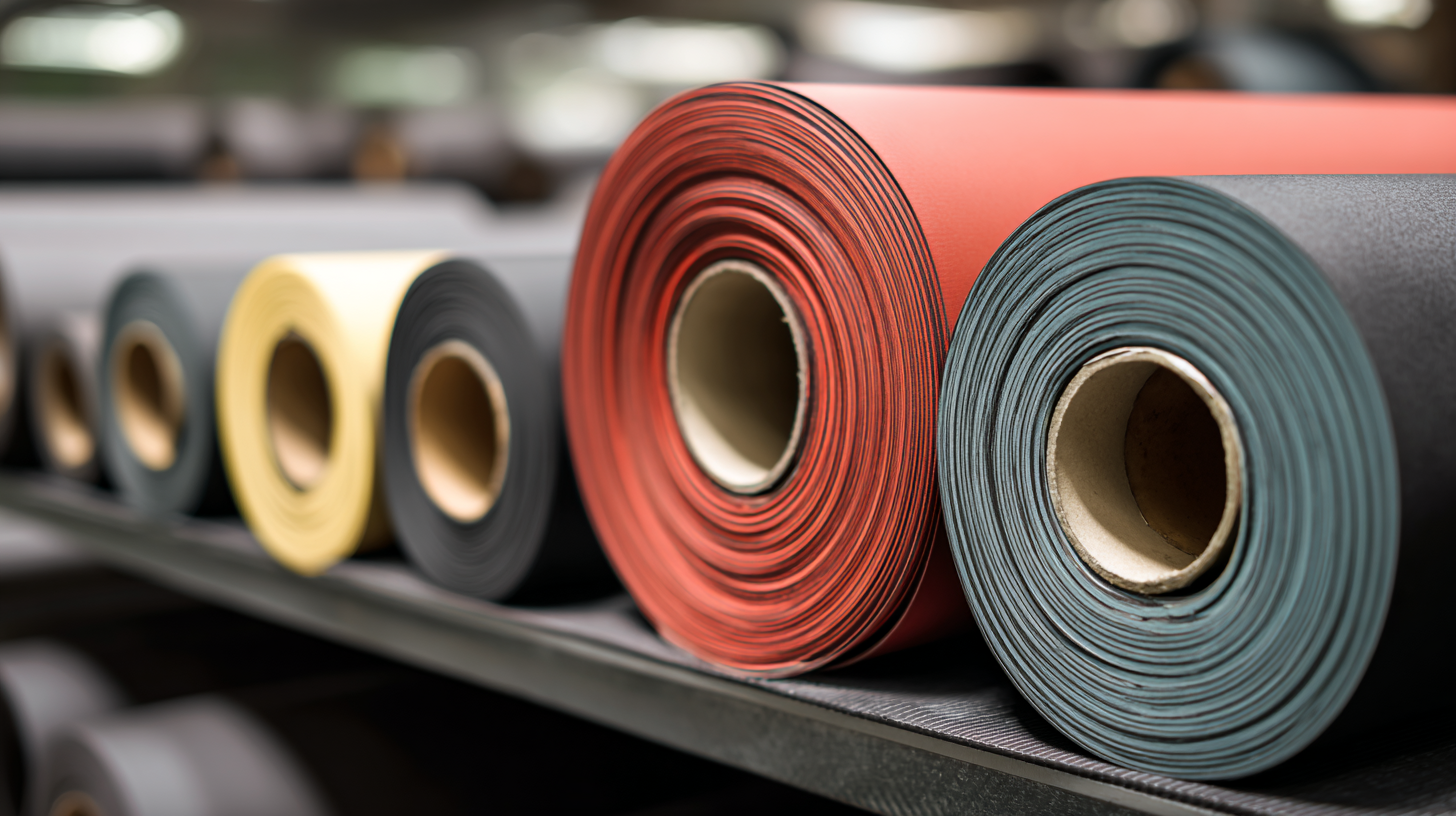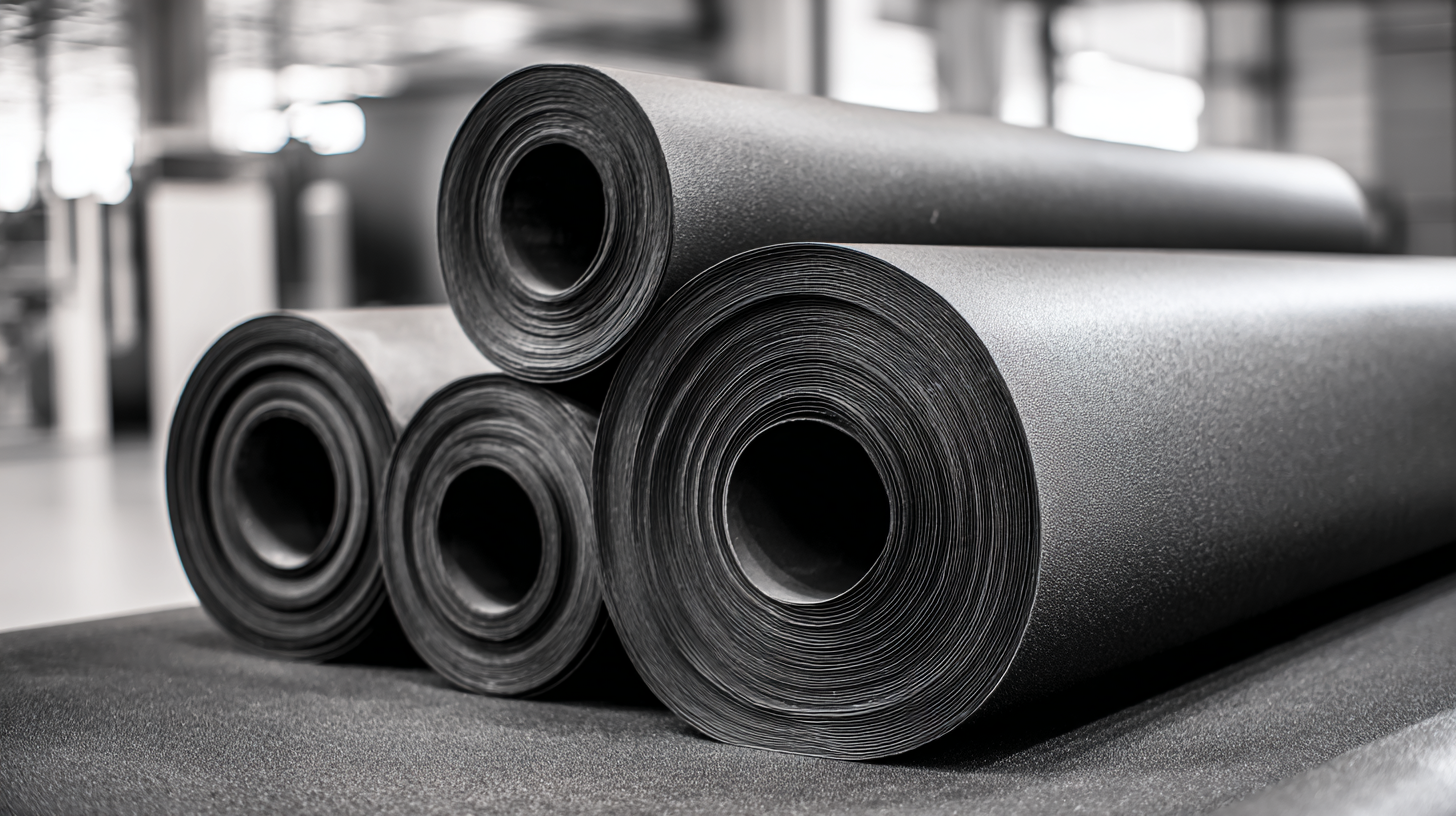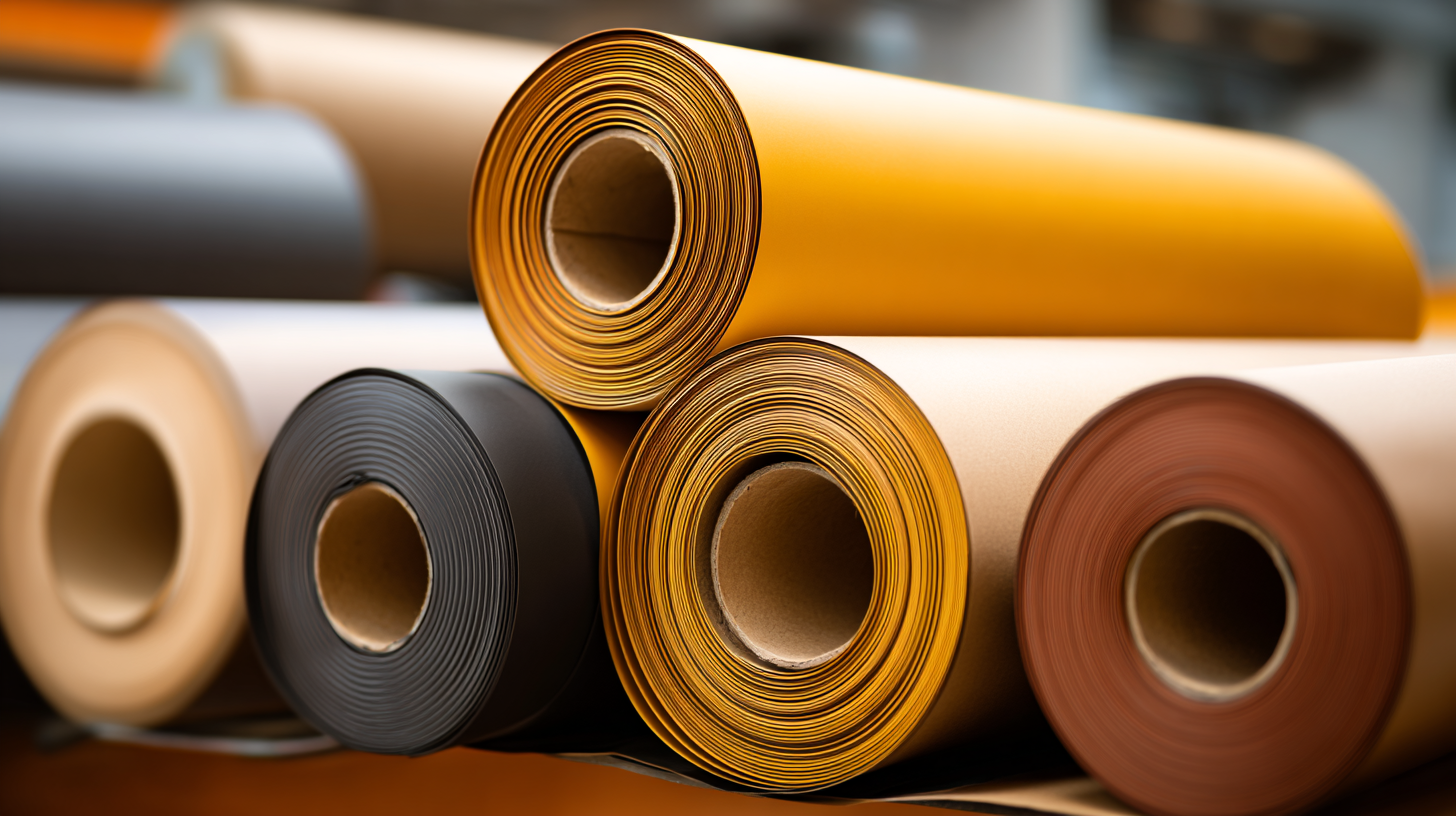

In today's interconnected global economy, the role of certifications in facilitating international trade cannot be overstated, particularly for Quality Rubber Sheet Roll manufacturers. As these manufacturers strive to expand their reach and access new markets, having the right import and export certifications becomes crucial. These certifications not only enhance the credibility of their products but also ensure compliance with various international standards and regulations. This blog will explore the significance of these certifications for rubber sheet roll manufacturers, providing valuable tips on how to navigate the complex certification landscape. From understanding specific requirements in different regions to maintaining high product quality, this guide aims to empower manufacturers with the knowledge needed to unlock global markets successfully.

In today's global marketplace, import and export certifications play a pivotal role for rubber sheet roll manufacturers aiming to expand their reach. These certifications not only demonstrate compliance with international standards but also ensure product quality and safety. For manufacturers, possessing the right certifications can significantly enhance credibility and facilitate smoother transactions across borders. They signal to potential clients that the manufacturer adheres to the stringent regulations required in various markets, which can be a decisive factor in securing contracts.
Furthermore, the dynamic nature of global trade necessitates that manufacturers stay updated with the ever-evolving regulatory landscape. Certifications like ISO, CE, and others not only help in meeting legal requirements but also enable manufacturers to access new markets seamlessly. By obtaining these certifications, rubber sheet roll manufacturers can mitigate risks associated with non-compliance and gain a competitive edge. As they navigate through different market demands, the importance of these certifications becomes increasingly evident, reinforcing their role as a cornerstone for successful international trade.
Navigating the intricacies of global markets requires a deep understanding of the various regulatory frameworks that govern the import and export of rubber sheet rolls. Each region presents its own set of requirements, making it essential for manufacturers to be well-versed in the specific certifications needed. For instance, while ISO certifications might be a universal standard reflecting quality management systems, certain markets may demand specialized certifications, such as those complying with the REACH regulation in Europe, which focuses on chemical safety.
Moreover, manufacturers looking to penetrate markets like the United States must ensure compliance with the FDA regulations if their rubber products are used in food or medical applications. This necessity often extends to other certifications that demonstrate adherence to environmental and safety standards. Understanding and acquiring these certifications not only facilitate smoother entry into diverse markets but also enhance the manufacturer's reputation as a reliable provider of high-quality products. As such, investment in navigating these regulatory requirements can significantly impact market competitiveness and customer trust in the global rubber industry.

In the competitive landscape of rubber sheet roll manufacturing, import and export certifications play a pivotal role in enhancing manufacturer credibility and fostering consumer trust. As businesses strive to meet the growing global demand, certifications such as ISO and CE signify adherence to international quality standards. A recent industry report highlighted that manufacturers with recognized certifications experience a 20% increase in consumer trust, significantly impacting their market penetration strategies.

Moreover, professional certifications are not just beneficial for manufacturers; they are also essential for employee development. Skilled workers equipped with expert credentials contribute to total quality management (TQM) initiatives, ensuring products meet customer expectations consistently. The emphasis on trained personnel aligns with the increasing consumer awareness regarding ethical business practices and sustainability. According to survey data, 75% of consumers prefer brands that demonstrate a commitment to ethical sourcing and sustainable production methods.
As the rubber industry evolves, leveraging certifications will be crucial for manufacturers looking to distinguish themselves in a crowded marketplace. By prioritizing both certifications and skilled workforce development, companies can effectively build lasting relationships with consumers and enhance their overall competitive edge.
In the competitive world of rubber manufacturing, certifications play a crucial role in helping companies establish themselves in global markets. Successful Chinese manufacturers, such as XYZ Rubber Co., have demonstrated how leveraging international certifications can significantly enhance their market presence. According to a report by Markets and Markets, the global rubber sheet market is projected to reach USD 8.5 billion by 2025, with an estimated CAGR of 5.3%. Companies that invest in obtaining certifications such as ISO 9001 and REACH are not only able to meet regulatory requirements but also gain a competitive edge by building trust with international clients.
For instance, ABC Rubber Products, a leading manufacturer based in Guangdong, utilized its ISO certifications to penetrate European markets. By ensuring compliance with stringent EU regulations, they increased their export sales by 30% within one year. Moreover, integrating certifications like GMP and CE marking has allowed them to align their products with the expectations of quality-focused buyers. As the landscape of global trade continues to evolve, effective certification strategies will remain essential for Chinese manufacturers aiming to unlock new opportunities and drive growth in international markets.
As the rubber industry continues to expand globally, the importance of import and export certifications is evolving to meet the challenges of international trade. Manufacturers of rubber sheet rolls must navigate a complex landscape of regulations and standards that vary significantly by region. Certifications not only facilitate smoother transactions but also enhance product credibility in foreign markets. Adhering to rigorous certification processes ensures compliance with environmental and safety standards, making products more attractive to global buyers who prioritize quality.
Looking to the future, the rubber industry can expect increased scrutiny and dynamic changes in certification requirements due to shifting regulatory landscapes and sustainability trends. Manufacturers must stay proactive by adopting transparent practices and investing in sustainable production methods that align with emerging global standards. Technological advancements, such as blockchain for supply chain transparency, will likely play a crucial role in streamlining certification processes and boosting trust among stakeholders. As the demand for eco-friendly products grows, manufacturers that embrace these changes will not only position themselves favorably in the international market but also contribute positively to the industry's overall environmental impact.